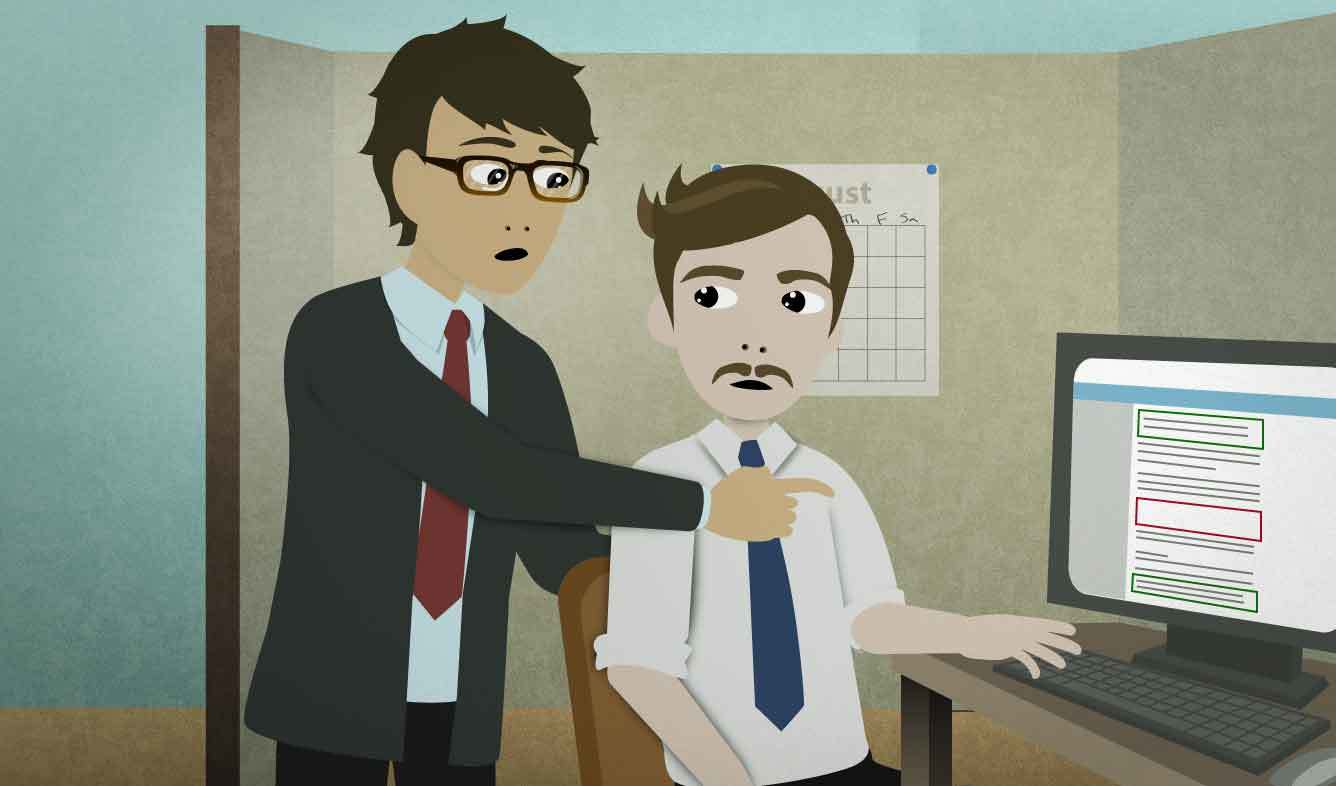“I noticed that you didn’t enter the customer information. Was that on purpose?”
A coworker is training you in how to use a database. He was showing you how to enter information into a form, but he left one area empty. You want to know if that was the right way to do it or a mistake.
I noticed that you didn’t enter the customer information. Was that on purpose?
Want Video and Sound? Follow us on YouTube

I noticed that (clause).
"Noticing" something means seeing something that's not easily seen. You can talk about something that you notice like this:
I notice that Ellen isn't wearing her wedding ring.
I noticed that one of the signs was missing.
You can also "notice" things by hearing them:
I noticed that you didn't mention Abraham at the manager's meeting.
enter (something in a form)
When you're filling out a form, you "enter" information:
Please enter your credit card number.
I entered my email address and clicked "Submit" but nothing happened.
(do something) on purpose
Doing something "on purpose" means that you intended to do it. In other words, it wasn't a mistake.
A: Did you do that on purpose?
B: No, it was an accident.
You can also use the word "purposefully":
A: You purposefully lied to me!
B: No, I thought I was telling you the truth.
customer information
We sometimes use two nouns together, like "customer information". When you do that, the first noun acts like an adjective. So "customer information" means information about a customer.
